News
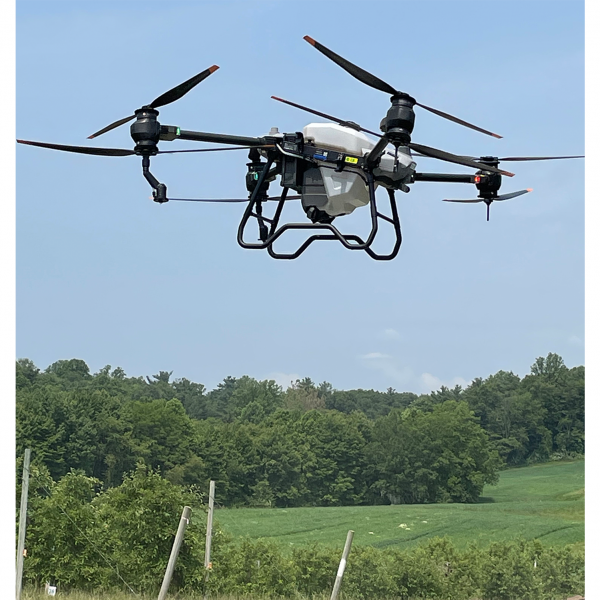
Apr 25, 2025
Are drones the future of tree fruit production? Researchers investigate
A team of researchers in Penn State’s College of Agricultural Sciences is addressing the growing interest among tree fruit growers in Pennsylvania and the Northeast in adopting drone-based spraying systems for high-density apple and peach orchards.
Full Article
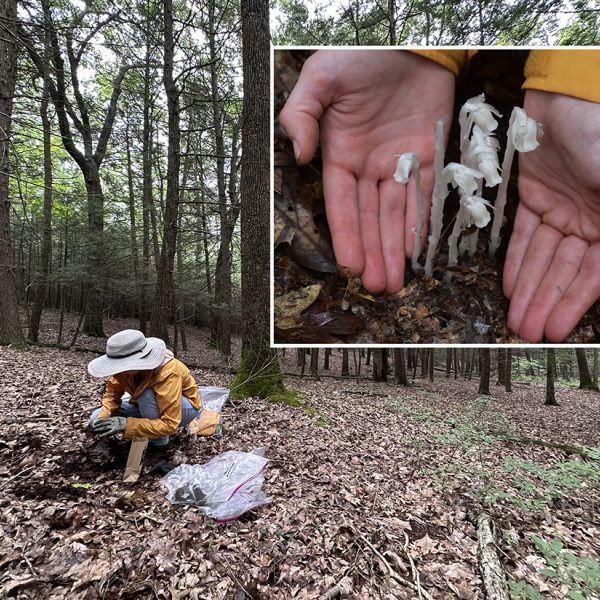
Apr 25, 2025
Traditional forest medicinal plant ghost pipe used differently today
Driven by the internet and social media, consumption of a strange white plant known as ghost pipe is enjoying a resurgence — but with a twist.
Full Article
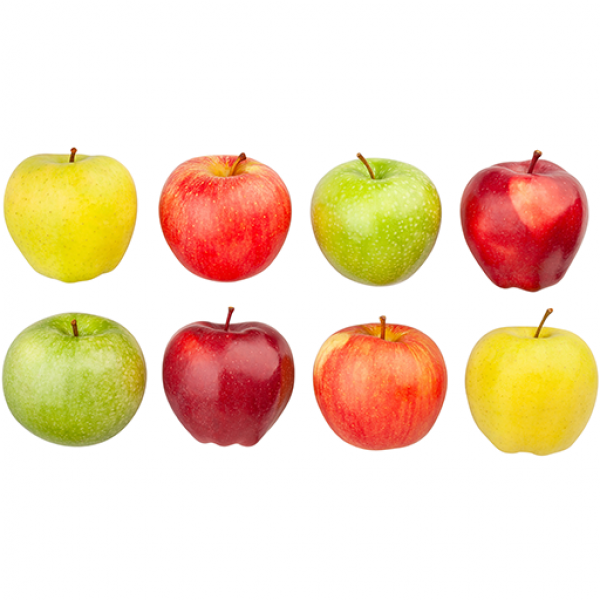
Apr 23, 2025
How do you like them apples? Apple genus evolution revealed
A new comparison and analysis of the genomes of species in the genus Malus, which includes the domesticated apple and its wild relatives, revealed the evolutionary relationships among the species and how their genomes have evolved over the past nearly 60 million years.
Full Article
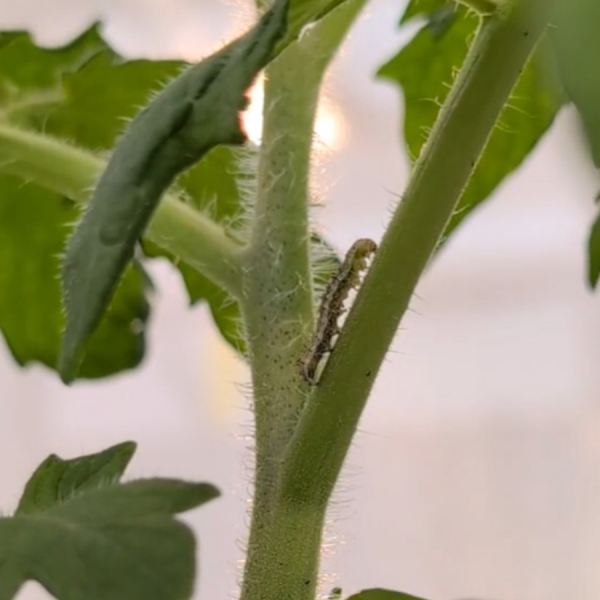
Apr 16, 2025
Feeling salty? Increased salt stress reduces tomato pest activity
Increased soil salinity can reduce damage from prominent tomato pests such as the tomato fruitworm, according to researchers at Penn State. They published their findings in the Journal of Plant, Cell and Environment.
Full Article
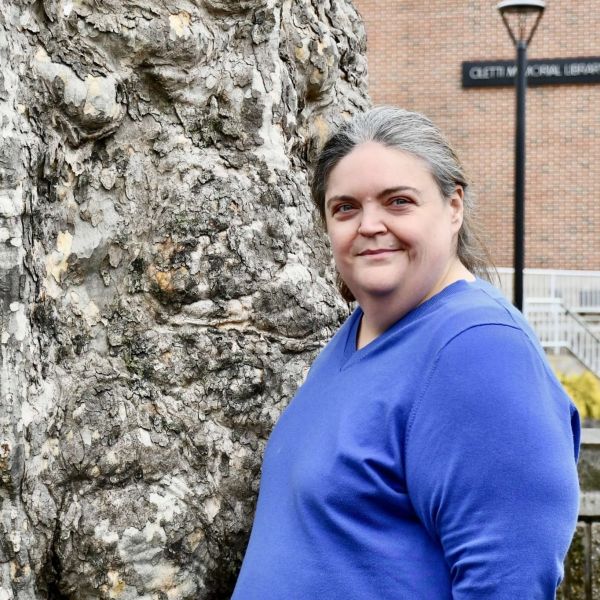
Apr 10, 2025
Penn State Schuylkill biologist recognized as a PERC Campus Sustainability Champion
The Pennsylvania Environmental Resource Consortium (PERC) has named Mary Ann Smith, lecturer of biology at Penn State Schuylkill, as a 2025 Campus Sustainability Champion.
Full Article
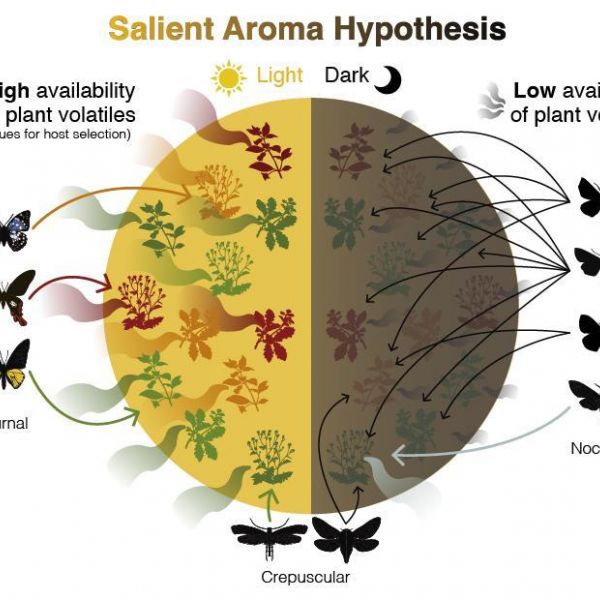
Apr 04, 2025
Picky eaters by day, buffet by night: Butterfly, moth diets sync to plant aromas
In a recent study published in the journal Proceedings of the Royal Society B, an international team of researchers tested a new hypothesis for why some Lepidoptera have very specific diets, feeding on only a few types of plants, while others are far less picky.
Full Article
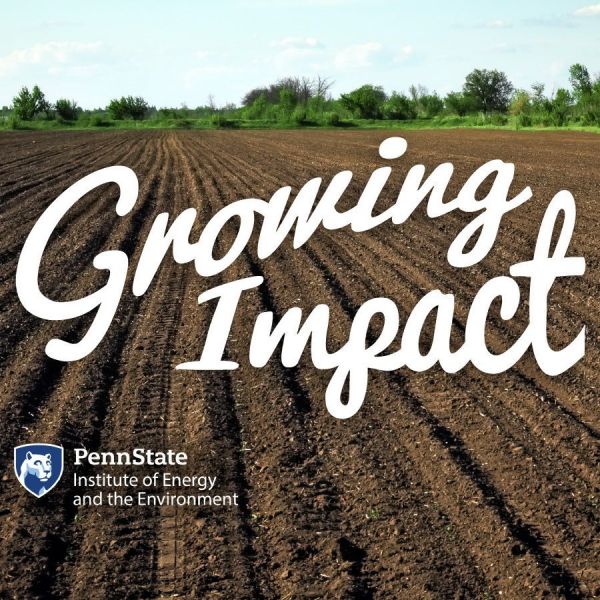
Apr 01, 2025
Researchers working to address agricultural greenhouse gas emissions
On the latest episode of “Growing Impact,” a team of Penn State researchers discusses how their seed grant project aims to address nitrous oxide emissions from the agricultural sector by developing a system for real-time emissions monitoring and reduction.
Full Article

Mar 18, 2025
BioArtist Mellissa Monsoon to present 'Collaborating with Microbes'
The One Health Microbiome Center and College of Arts and Architecture are co-hosting three events as part of a multi-year SciArt collaboration.
Full Article

Mar 17, 2025
Ag Sciences research institute SAFES funds projects addressing critical issues
Penn State’s College of Agricultural Sciences, through its Institute for Sustainable Agricultural, Food and Environmental Science, known as SAFES, announced funding awards to accelerate the advancement of its Critical Issues Initiatives. These initiatives serve as the college’s impact hubs, addressing urgent and high-impact challenges through targeted efforts and innovative projects.
Full Article

Mar 14, 2025
Plant biologist awarded the Masatoshi Nei Innovation Prize in Biology
Sarah Assmann, Waller Professor of Plant Biology at Penn State, has been awarded the Masatoshi Nei Innovation Prize in Biology. The award was established through a generous gift from Masatoshi Nei, professor emeritus of biology at Penn State; Laura Carnell, professor of biology at Temple University; and Nei’s wife, Nobuko Nei. The prize is intended to recognize a preeminent scientist who is on the faculty at Penn State, is an innovator in their field, and has achieved outstanding scientific research and leadership in the biological sciences.
Full Article